- Home
- James Newman
Animosity
Animosity Read online
A PERMUTED PRESS book
Published at Smashwords
ISBN (Trade Paperback): 978-1-61868-2-383
ISBN (eBook): 978-1-61868-2-390
Animosity copyright © 2013
by James Newman
All Rights Reserved.
Cover art by Dean Samed, Conzpiracy Digital Arts
This book is a work of fiction. People, places, events, and situations are the product of the author’s imagination. Any resemblance to actual persons, living or dead, or historical events, is purely coincidental.
No part of this book may be reproduced, stored in a retrieval system, or transmitted by any means without the written permission of the author and publisher.
Table of Contents
Part One
Chapter One
Chapter Two
Chapter Three
Chapter Four
Chapter Five
Chapter Six
Chapter Seven
Chapter Eight
Chapter Nine
Chapter Ten
Chapter Eleven
Chapter Twelve
Chapter Thirteen
Chapter Fourteen
Chapter Fifteen
Chapter Sixteen
Chapter Seventeen
Chapter Eighteen
Part Two
Chapter Nineteen
Chapter Twenty
Chapter Twenty-One
Chapter Twenty-Two
Chapter Twenty-Three
Chapter Twenty-Four
Chapter Twenty-Five
Chapter Twenty-Six
Chapter Twenty-Seven
Chapter Twenty-Eight
Chapter Twenty-Nine
Chapter Thirty
Chapter Thirty-One
Chapter Thirty-Two
Chapter Thirty-Three
Chapter Thirty-Four
Chapter Thirty-Five
Epilogue
“’Tis slander, Whose edge is sharper than the sword, whose tongue
Out-venoms all the worms of Nile, whose breath
Rides on the posting winds, and doth belie
All corners of the world.”
--William Shakespeare, “Cymbeline”
“Gossip is always a personal confession of malice… it is a low, frivolous, (and) dirty business. There are neighborhoods where it rages like a pest; churches are split in pieces by it, and neighbors made enemies for life…”
--Jack Holland
“The Bible tells us to love our neighbors, and also to love our enemies; probably because they are generally the same people.”
--G.K. Chesterton
Ten minutes ago I killed three of my neighbors.
***
Perhaps I should feel something—disgust, remorse for what I have done. But for now I am only numb.
Hot blood drips into my eyes. Some of it is mine, but not all of it.
“Drive faster,” I tell the man behind the wheel. I can barely hear my own voice above the shrill ringing in my ears.
I cough, tasting cold steel and bitter bile, and something ricochets off the dashboard into my lap. Several somethings: small, off-white, speckled with dark crimson and trailing meaty pink tails…
Two of my front teeth. And the jagged splinter of a third.
“Faster,” I start to weep. “P-please…”
I peer down at the hole in my chest. It seems to pucker up and grin at me, like a cruel alien mouth dribbling gore.
My tears burn like acid through the grit upon my face.
“For Christ’s sake, don’t stop for anything…”
***
Ten minutes ago I killed three of my neighbors.
Four, if you count the baby.
***
Ben Souther was the first. At one time, I suppose I would have called Ben a friend. We had emptied countless bottles of beer together on his front porch during so many hot summer nights. No matter how depressed I got about my recent divorce, my next-door neighbor always made me smile with his endless repertoire of spontaneous quotations. Of course, that was before I put a bullet in Ben’s throat, watched him fall to the ground, jerking and gurgling like a rusty faucet that has not been used for decades.
Next was a stooped old man by the name of Sal Friedman. Sal had a thick Jersey accent, drove a Cadillac the size of a small yacht. Last I heard from Sal, he was yowling for Sweet Mother Mary to put him out of his misery after I shot him pointblank in the groin. His fancy pink golf pants had gone bright red, and his curly white toupee hung off one side of his skull like a sated parasite as he writhed upon my lawn.
Then there was Donna Dunaway, the lady who lived across the street from me. Despite her “plain Jane” demeanor, I admit I did enjoy a bit of harmless flirting with her even while I was married. I could never understand how her husband Allen had left her last spring (for another man, if you believe the rumors) especially since she was due to have a baby any day now.
I did not want to hurt Donna. Or the child inside of her.
But I had to shoot her twice.
PART ONE
July 17 - July 31
CHAPTER ONE
It seems like months have passed since it all began.
Hard to believe it has barely been three short weeks since my world came crashing down, and my life became a nightmare.
Like something out of one of my books.
CHAPTER TWO
My name is Andrew Kenneth Holland. I am thirty-nine years old.
And I am a horror writer.
Shit… that sounds like some sort of confession, doesn’t it? A shame-faced introduction to Hacks Anonymous:
ME
(hanging head, sniffling softly)
Hello. I’m Andy. I write horror for a living.
FELLOW LOSERS
Hi, Andy!
Once upon a time, I did not apologize for my profession. After all, writing about demons, zombies, vampires, and serial killers has done quite well for me through the years. These days, however, I find myself wishing more and more that I had followed in my father’s footsteps.
Surely life would have been much safer in the HazMat business.
***
I was twenty-one years old when I sold my first novel, Wolf Moon. The critics loathed it—Monthly Fiction Digest called it “a plotless plethora of ribald sex and gore redeemed only by the death of its despicable anti-hero”—but when all was said and done that hardly mattered. Nine months after the release of the paperback edition, a top production company in Hollywood bought the movie rights to Wolf Moon for a price somewhere in the mid- six figures. The nasty comments made about my work by a few self-important “reviewers” rolled off my back like so much bloody water (if you will), and here I am. I have been writing for a living ever since.
To date I’ve published thirteen novels under my own name. Blood Dance, Brain Fever, The Night People, House On Harding Street, and Slow Burn (my latest) are a few titles you might recognize. Most of my books have seen print in at least a dozen different languages all over the world. Wolf Moon VI: The Return was released just last month direct-to-video, and though I cringe when I think of what the producers did the first five times to my tale of werewolves in the Big Apple, I really cannot complain considering I was once again paid handsomely for my ideas. I have also written four young-adult horror novels—Cannibal High, Devil’s Detention, A Date With Dracula, and Go See Principal Zombie—under the pseudonym “Anthony Dutch.” Per our contract, I owe my publisher one more of those (the last in my popular “Frightsville, U.S.A.” series) before the end of this year.
Unfortunately, I do not know when that will happen. If it will ever happen…
So much has changed, you see.
Everything has fallen apart.
***
> I used to consider myself fortunate. There are only a handful of writers who make a decent living working in this genre, much less a very good living. I often have a hard time believing I am one of them, a member of this elite club.
Horror has long been considered, depending on whom you ask, the “ghetto” of the literary world. It is a genre just a step above smut in many critics’ eyes. I know—I have experienced such pretension firsthand. I’ve witnessed the way readers of “real fiction” peer down their noses at me when they wander by mistake into one of my bookstore signings. I have seen the condescending smiles on the faces of the reporters from the Harris City Tribune who beg me for an interview every Halloween (that is the time of year, after all, when it is okay to dwell upon evil and darkness and ghastly, grinning things from the grave). To this day, I still field countless questions from my friends and family regarding when I plan to write a “serious” novel. Something that will stand the test of time long after I’m dead and gone.
I usually just grin every time I hear that old standby. I humor those who ask it, and I lie, “Wait. I’m working on several as we speak.”
As for my neighbors… once upon a time, the folks in my community seemed proud to know me. As if, by acquainting themselves with someone “famous,” they felt elevated above their humdrum suburban roles. Don’t get me wrong—by no means do I think I am better than anyone else, nor do I consider myself a celebrity. I am far from a household name. But to the ladies and gentlemen of Poinsettia Lane, I might as well have been a movie star. Even the ones who claimed they never read “that horror stuff”—which was at least ninety-nine percent of them—offered me more-than-friendly waves and hearty hellos every time I passed in my Explorer. Sal Friedman up the block called me “Mr. Writer Fella” from the first day we met. His trademark greeting was “How’s the horror business?” and the old guy always seemed so sincere in wanting to know despite the fact that he perpetually mispronounced my genre “hair-o.” Joe and Eileen Tuttle, the black couple who lived in the Dutch Colonial four houses down from mine, used to plead with me on a monthly basis to come speak before their respective eighth- and ninth-grade English classes (as “Anthony Dutch,” of course, my young-adult nom de plume). While she claimed Harlequin Romances were more her speed, Mitzi Pastorek came knocking at my door days after the release of every new hardcover I published, requesting I personalize a copy for her niece Brianna, who lived in San Francisco and was “always on the lookout for books and movies relating to the paranormal, since she became one of those ‘gothic people.’ ” Ronnie “Round Man” Miller, owner of the 7th Avenue Stop-N-Shop across town, habitually overstocked my novels on the racks beside his cash register. Any time I dropped by his store for a cup of coffee or a tank of gas he made sure I signed every last copy before he’d let me leave. Being the nice guy I am, I pretended not to notice the 200% mark-up on their cover prices the next time I paid Round Man a visit.
Of course, I could always expect the inevitable inquiries any writer who has been in this business for more than a few years has heard in endless supply. Questions like “Where do you come up with this stuff?” and “Do you know Stephen King?” and “I always wanted to write a book, man… maybe I could tell you one of my ideas and we could split all the profits?” I suspect horror authors hear the latter twice as often as writers of mainstream fiction, as if he who posits such a query has narrowly escaped being lumped in with the sort of sickos who forge successful careers dealing in the macabre.
Sickos like me.
Alas, it is that exact mentality which now makes me realize I should have seen it all coming a long time ago, before things turned bad around here. On more than one occasion after we moved into the house on Poinsettia Lane, I remember my wife mentioned the subtle derision lurking in our neighbors’ eyes beneath their beaming white smiles and eager salutations. The way they stared at me sometimes, Karen said… it was as if they could not decide whether they wanted to ask me for my autograph, or condemn me for concocting tales of madmen and monsters in an already mad, monstrous world.
I told her she was being silly, warned her that we’d better not start making enemies before we had a chance to make friends.
Still… she had a point. A damn good point. I see that now.
They liked knowing me. It made them feel special.
But that never stopped the world around me from thinking I was a little bit weird.
***
We bought the place five years ago this past winter. Karen fell in love with it right away, said it reminded her of her grandparents’ summer home in Tampa. There was nothing fancy about it in the least—to be honest, we could have afforded something much larger and considerably less modest, had we so desired—but we have never been the types to flaunt our good fortune. The house at 217 Poinsettia Lane was enough for our little family, and nothing else mattered. Three bedrooms, one bath. Ranch-style, white with navy blue trim. Seven-foot privacy fence surrounding the backyard. A newly blacktopped driveway. Just under an acre of prime real estate.
And it sat in the middle of one fantastic neighborhood.
Several months after we moved in, Karen quit working full-time. While she kept her name on the substitute teacher lists at the local elementary schools, the cash purchase of our new home proved once and for all that we had done well for ourselves. We were happy. Content. At times, I felt we were the epitome of the American Dream.
That is, until the divorce.
A little less than a year ago, not long after our lucky thirteenth wedding anniversary, Karen began to act… strange. It seemed to happen overnight. Every time I hung up the phone following a long conversation with my agent or a publisher, she would insinuate that there was more going on than just business. She started accusing me almost every day of spending more time in my office, on the phone or on the computer, than I spent with my family. If I hadn’t known better, I would have thought she was jealous of my job! And it didn’t help defuse our frequent arguments when I reminded her that this was my livelihood, as it had been since we first started dating. I should have opened my eyes. Should have recognized the warning signs. I was a fool not to realize that, more often than not, it is the guilty who accuse the loudest of all.
One afternoon last spring—on April Fool’s Day, no less, as if any date could have been more sickeningly appropriate—I flew home early from a writer’s conference in Rhode Island to find my wife in our bed with another man.
His name was Jason Burke. He was her boss, the superintendent of the local school system.
He still had his tie on, I remember, as he stuck his cock in places where Karen had never allowed me to go.
Two weeks later, we made it official. I kept the house, the dog, and my Explorer. Karen contested none of it. She wasted no time moving in with the inimitable stud named Jason Burke, taking with her not much more than the clothes on her back, her Volvo, and her cell-phone.
I’m sure I sound bitter. Can you really blame me? But I wished them well. I moved on with my life the best I can, because I had to focus on the most important thing in the world. I had my little girl to think about.
The court gave us joint custody. While Samantha lived with her mother, I got to keep her on Wednesdays and every other weekend.
I know it was tough on our daughter, and I wish Karen and I could have worked it all out somehow.
But then… I wasn’t the one with my boss’s dick in my ass, now was I?
Sometimes it’s easier said than done, trying not to hold a grudge. One thing I swore I’d never do, though, is treat Samantha like a pawn in some twisted game between her mom and me.
“Your mother and I may not be together anymore,” I tell my daughter each time she comes to visit, as she gazes up at me with those angelic blue eyes which look so much older and wiser than those of any eleven-year-old I have ever known, “but I promise Daddy will always love you.”
She smiles, nods. For the most part, she seems to understand.
For the mos
t part.
CHAPTER THREE
It began with the death of a child. A child named Rebecca Faye Lanning.
I found her body one sunny Thursday morning, less than two hundred yards from my front door.
***
You would think Karen and I would have nothing to fight about after the disintegration of our marriage. She got what she wanted, after all. No more sneaking around to hide her infidelity. She had started a new life with a man she decided could satisfy her more than I could, and I did not attempt to stop her. It had even been my idea to let Samantha live with her (perhaps the most difficult decision I have ever made, though in the end I concurred that a young lady on the verge of adolescence needs to be with her mother). But I often wondered if my ex-wife tried to start arguments with me just so I’d lose my temper and say something I would later regret. Then maybe she wouldn’t feel so guilty about flushing thirteen years of marriage down the toilet.
The day it all started, I had called to ask Karen if it would be possible to deviate from our usual schedule. I needed her to keep Samantha for the weekend. It was my turn to pick up our daughter the following Friday afternoon; however, the deadline to my latest novel-in-progress loomed dangerously close, and I hoped an extra evening or two alone might grant me enough time to catch up on a few chapters. I certainly did not prefer to postpone my time with Sam, yet the thought of having to pay back a publisher’s advance because I’d failed to meet my contractual obligations helped dilute the pain of personal sacrifice just a tad.

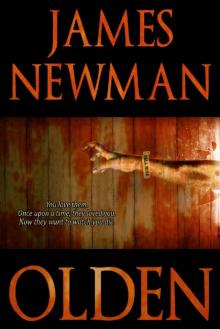 Olden
Olden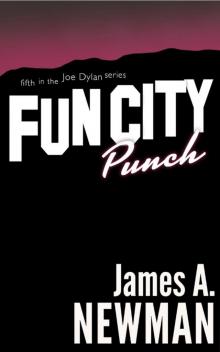 Fun City Punch (Joe Dylan Crime Noir, #5)
Fun City Punch (Joe Dylan Crime Noir, #5)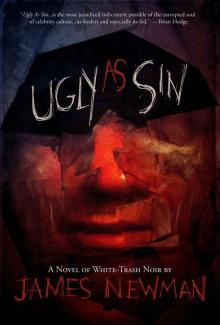 Ugly As Sin
Ugly As Sin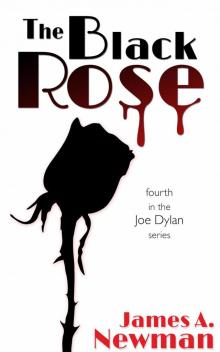 The Black Rose (Joe Dylan Crime Noir, #4)
The Black Rose (Joe Dylan Crime Noir, #4)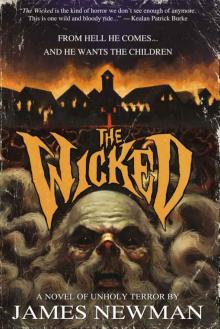 The Wicked
The Wicked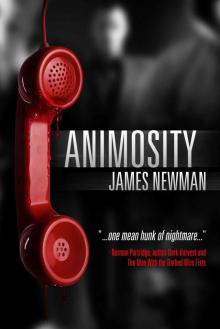 Animosity
Animosity Bangkok Express (Joe Dylan Crime Noir, #1)
Bangkok Express (Joe Dylan Crime Noir, #1)